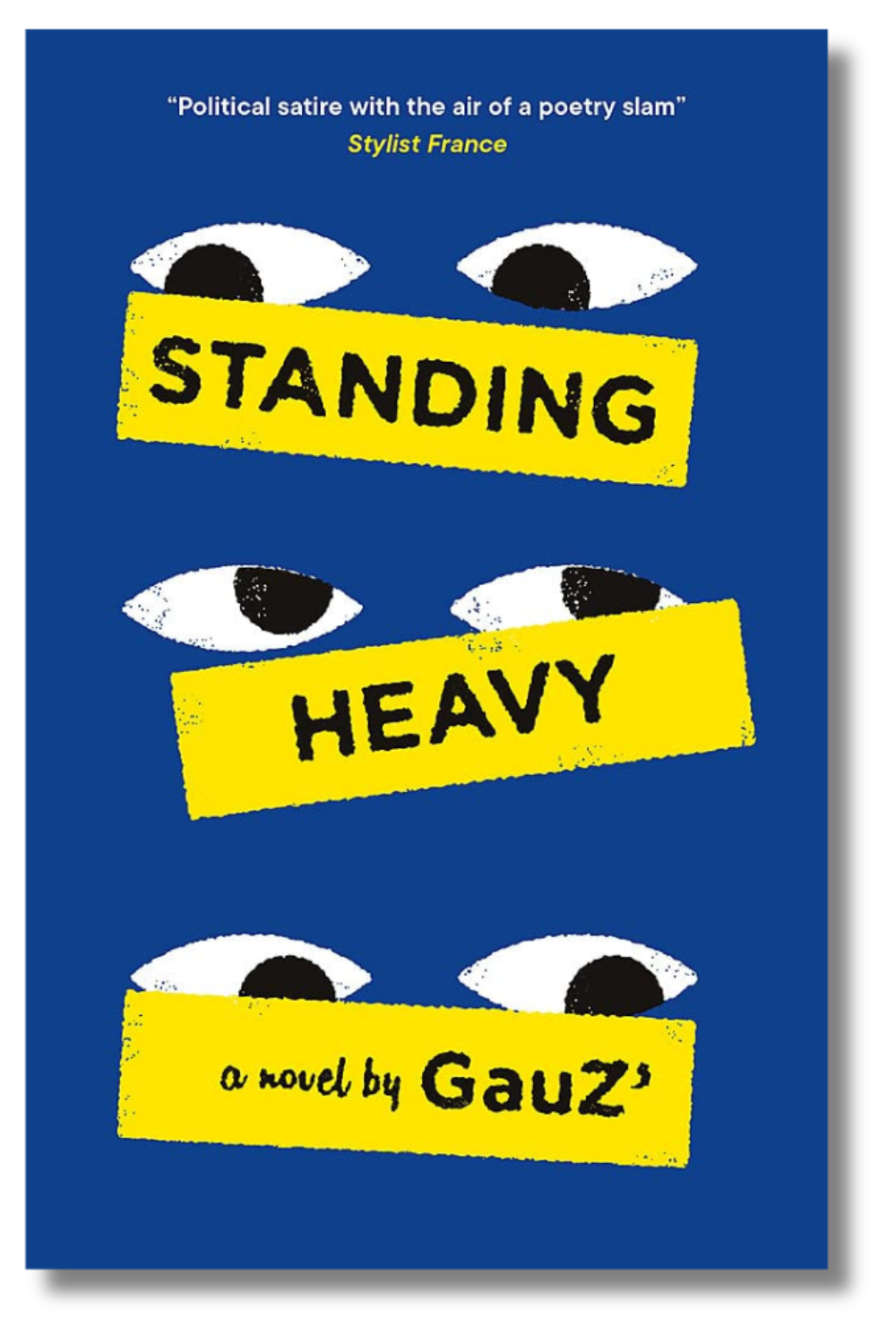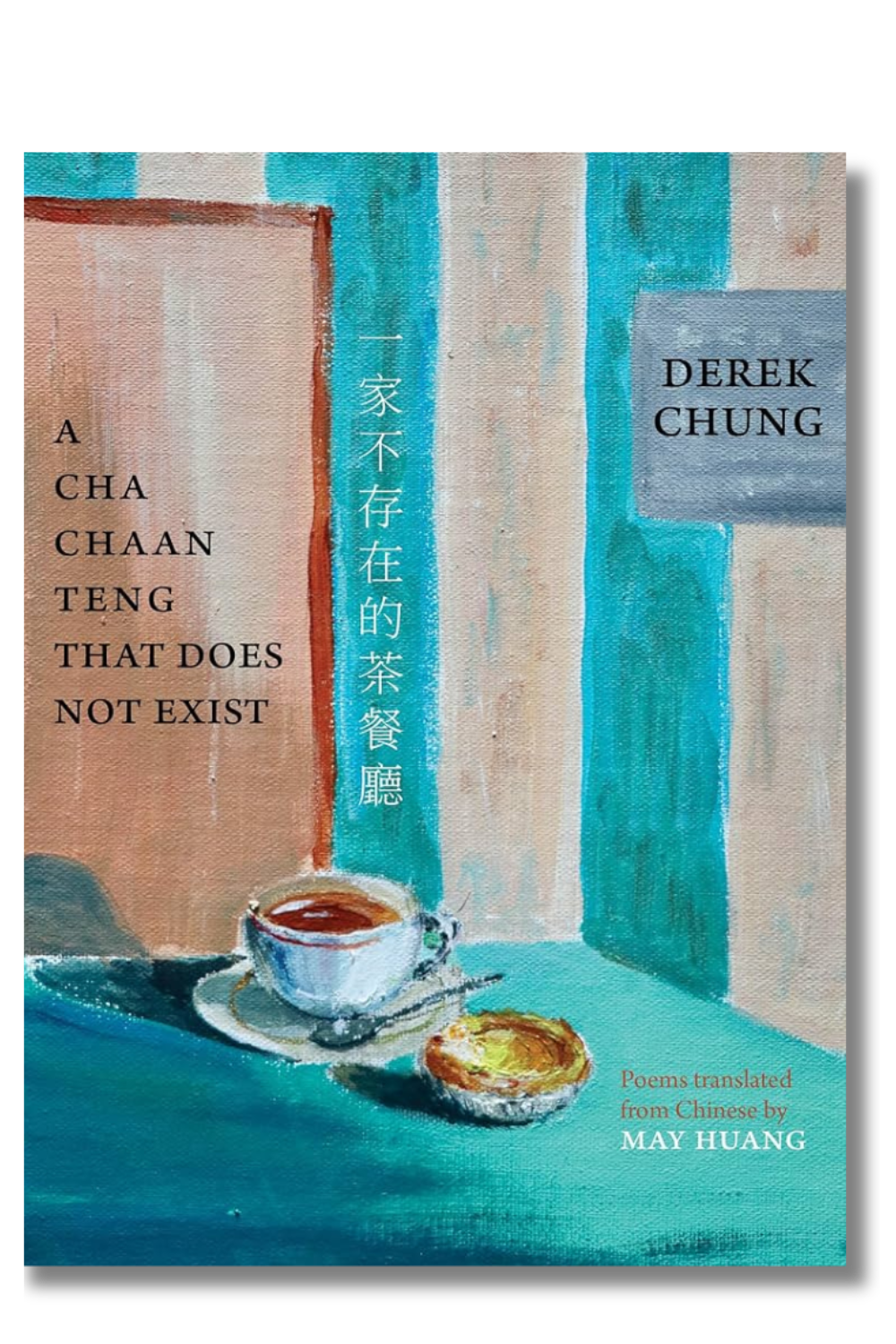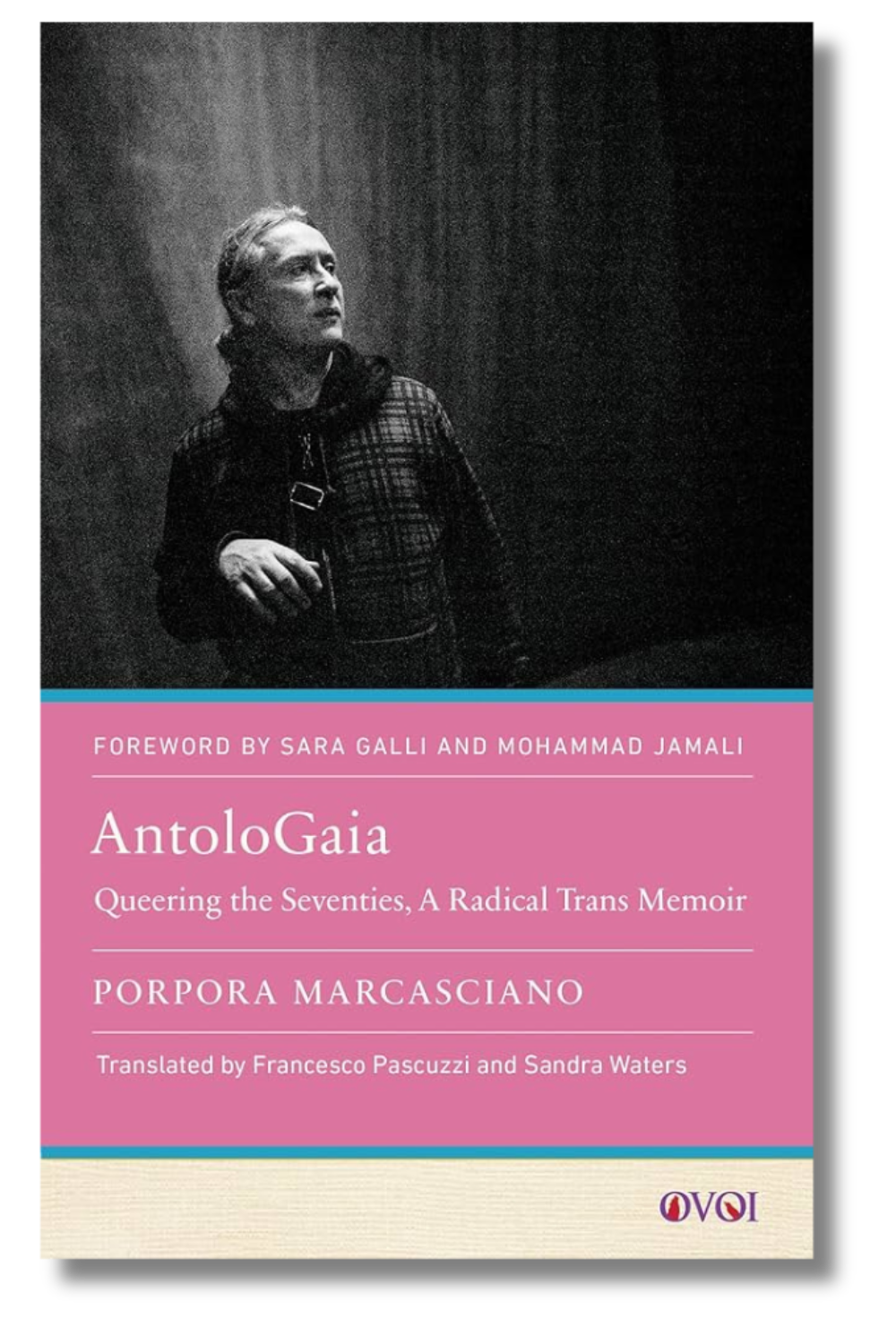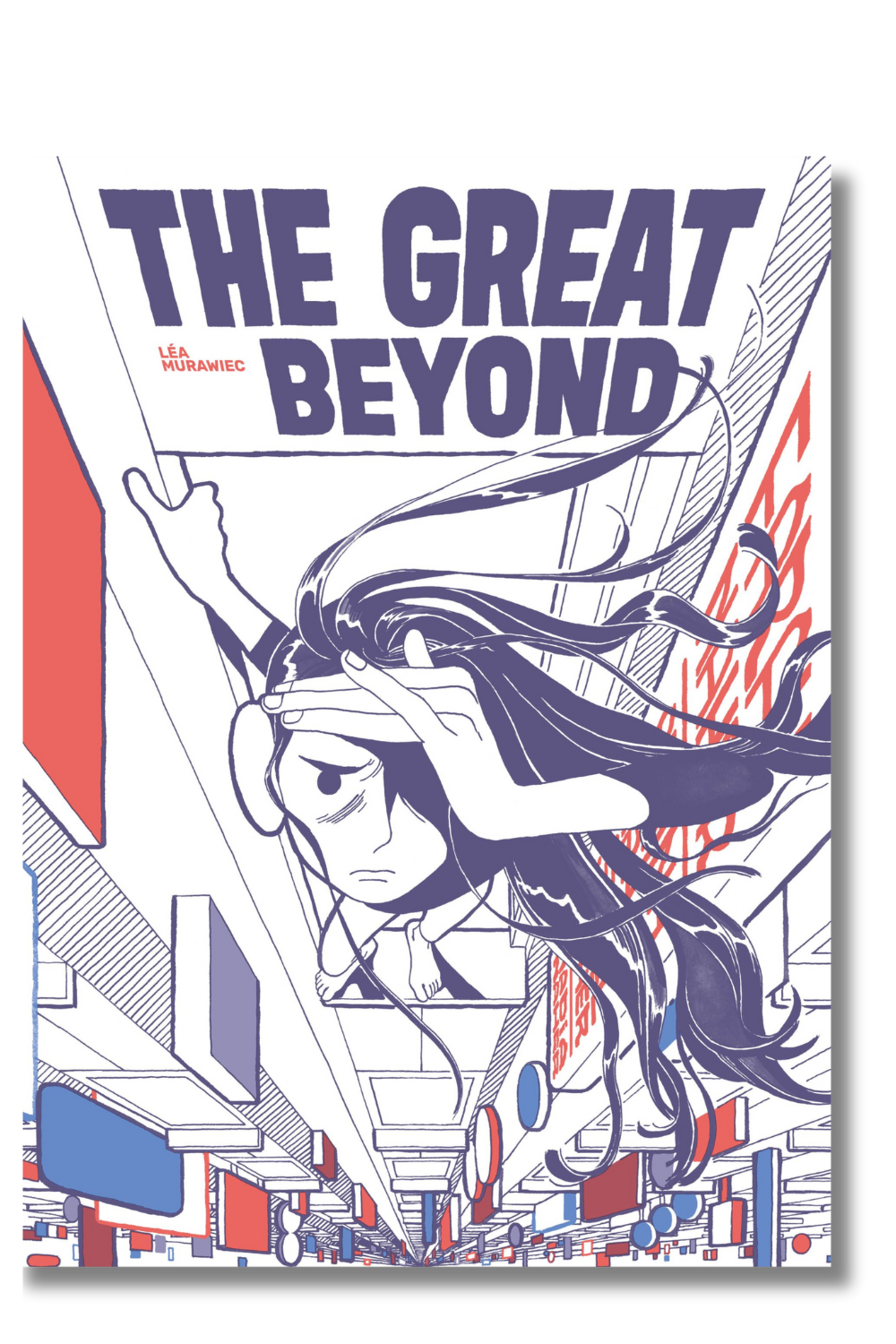From Biblioasis | Standing Heavy by Gauz’, translated from the French by Frank Wynne | Fiction | 168 pages | ISBN 9781771966009 | US$22.95
What the publisher says: “All over the city, they are watching: Black men paid to stand guard, invisible among the wealthy flâneurs and yet the only ones who truly see. From Les Grands Moulins to a Sephora on the Champs-Élysées, Ferdinand, Ossiri, and Kassoum find their way as undocumented workers amidst political infighting and the ever-changing landscape of immigration policy.”
What Patrick Lyons at the Times Literary Supplement says: “Though separated by time, the characters pass through the same spaces of housing and employment, highlighting historical shifts in immigration policy and the deindustrialization of Paris. One generation’s student dormitory becomes the next generation’s squat. Ferdinand guards the Les Grands Moulins flour mill; Ossiri and Kassoum later patrol its ruins.”
What I say: Tightly written and tautly structured, Standing Heavy has a considerable heft to it. This is a novel that blends the sociopolitical observation of George Orwell’s early work with some deft formal choices that make for an especially unique reading experience. There have been countless novels written about class and immigration over the years, but what Gauz’ has done here is truly singular.
From Zephyr Press | A Cha Chaan Teng That Does Not Exist by Derek Chung, translated from the Chinese by May Huang | Poetry | 112 pages | ISBN 9781938890284 | US$16.00
What the publisher says: “Though his poems bear the influence of anglophone poets such as Elizabeth Bishop and Seamus Heaney, Hong Kong is at the heart of [Chung’s] work. Writing through the lens of a father, restaurant-goer, dreamer, flaneur, and more, Chung captures a city in motion—and the joy, loss, and heartbreak that comes with loving Hong Kong.”
What translator May Huang says: “Derek Chung, the writer I’ve translated the longest, has had a monumental impact on how I write just because I’ve spent so much time with his words. For example: I went through a phase of translating a few sestinas he wrote from Chinese into English a few years ago. The experience influenced me to write a sestina of my own, which will be published in an anthology of Hong Kong poets this year.”
What I say: In May Huang’s translation, Derek Chung’s poetry moves from a lingering detail to an enduring theme and back again. Consider these lines from the poem that gives the book its title: “The confused waiter no longer knows / Where to begin / The stories sit above his apron pocket / As his handwriting spreads / And dissolves into his notebook / Still a few strokes persist.” Memory and place converge powerfully in these poems, which abound with literary and local history alike.
From Rutgers University Press | AntoloGaia: Queering the Seventies, A Radical Trans Memoir by Porpora Marcasciano, translated from the Italian by Francesco Pascuzzi and Sandra Waters | Memoir | 364 pages | ISBN 9781978835788 | US$34.95
What the publisher says: “In this stirring memoir by a member of the first generation of LGBTQ+ activists in Italy, Porpora Marcasciano tells her story and shares the struggles and accomplishments of her fellow activists who achieved so much in the 1970s yet suffered devastating losses during the AIDS epidemic of the 1980s. AntoloGaia offers an insider’s look at the beginnings of the gay liberation movement in Italy and reveals how it was intimately intertwined with other forms of left-wing activism.”
What Juliet Jacques says: “A fascinating look into Italy’s radical queer and trans cultures and their fraught relationship with wider left-wing politics, Marcasciano’s AntoloGaia is just as much a guide to how to live one’s life with courage, conviction, and creativity.”
What I say: There’s a lot to reckon with in Porpora Marcasciano’s sprawling memoir AntoloGaia, from the author’s remembrances of coming of age at a time of political and social upheaval to the harrowing effects of AIDS on the artists and activists with whom she was close in the 1980s. What makes this memoir especially urgent is Marcasciano’s documentation of the ways in which queer liberation both did and did not dovetail with other aspects of leftist activism in 1970s Italy.
From Katakana Editores | Free Radicals by Rosa Beltrán, translated from the Spanish by Robin Myers | Fiction | 298 pages | ISBN 9798986528458 | US$19.00
What the publisher says: “Free Radicals is the story of a girl who finds herself watching her mother run off with her lover on a Harley-Davidson motorcycle. The aftermath makes for the most incredible novel of our times: a saga that reconstructs over six decades in the history of Mexico, the United States, and the world, marking at least four generations.”
What I say: Free Radicals converges thematically with several other books discussed this month, sharing a focus on activism with AntoloGaia and a scale that moves from the personal to the societal with Standing Heavy. That ability to zoom in and out helps to make Beltrán’s book so memorable—as well as mind-boggling when the author reveals this novel’s full scope.
From Drawn & Quarterly | The Great Beyond by Léa Murawiec, translated from the French by Aleshia Jensen | Graphic Novel | 204 pages | ISBN 9781770466777 | US$23.95
What the publisher says: “Manel Naher wants out. In a world where your name is currency, it’s tough to make ends meet. It’s even tougher when you share a name with a rising pop star. The city is unbearable—endless high-rises, social climbers left and right, and nothing but names as far as the eye can see.”
What Publishers Weekly says: “Self-promotion is a life-or-death proposition in Murawiec’s English-language debut, an exhilarating satire of celebrity and the attention economy that bursts with pop sensibility. In an absurdist metropolitan dystopia choked with signs and billboards bearing citizens’ names, lonely people aren’t just forgotten. They lose their corporeal form and die.”
What I say: Initially, Léa Murawiec’s The Great Beyond looks like it’s set in a world like our own, with crowded cities, ubiquitous pop stars, and people navigating their work-life balance in occasionally fraught ways. This graphic novel’s central conceit—that familiarity with someone’s name can make that person literally immortal (or literally deceased)—takes things in a more satirical direction and sends its protagonist through an array of physical, social, and moral challenges. Throw in some vividly stylized art that recalls Hariton Pushwagner’s cult classic Soft City and you have a thoroughly compelling work.
Copyright © 2023 by Tobias Carroll. All rights reserved.

















